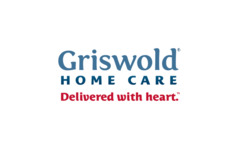Wilmington, a historic city on the scenic Delaware River, is the most populous city in the state with just over 70,000 residents. It has a relatively low percentage of seniors, at 12.7 percent, but is home to a variety of senior-friendly attractions including museums, gardens and a lively arts and culture scene. Residents can visit the Grand Opera House, the Delaware Center for Horticulture or the sprawling Wilmington Riverfront packed with shops, eateries and historical attractions. The centralized location allows for day trips to nearby Philadelphia, Washington, DC, and New York City, which is only a short train ride away.
Assisted living facilities are designed for seniors who wish to receive supportive care services in a residential environment. Trained aides assist residents with daily activities, such as dressing, bathing and eating, as well as medication management and domestic tasks. Communities generally offer diverse amenities and enrichment activities for holistic well-being and happiness. At around $5,685 per month, assisted living in Wilmington, DE, costs less than the state average.
We’ve compared assisted living costs in nearby cities and listed affordable local resources that provide diverse support to Wilmington’s older population.
Hundreds of thousands of American seniors utilize assisted living, a figure that is only growing. For these seniors, assisted living combines residential housing,assistance in daily activities, and some healthcare. These communities also strive to provide an atmosphere that is comfortable and engaging for their residents… Read More >
COVID-19 restrictions and rules for Assisted Living Facilities are typically set by the state – to see the rules in your state, you can read our guide to Assisted Living in Delaware. Keep in mind that there may be other policies that communities put in place to protect their residents, so you should contact your local community for more information. Additionally, you can contact your local Area Agency on Aging to learn more – find contact information here.
The median cost of assisted living in Wilmington is $5,685 per month, according to Genworth’s 2021 Cost of Care Survey.
Although higher than the U.S. monthly average of $4,500, the cost of assisted living in Wilmington is lower than Delaware’s median monthly price of $5,995.
Assisted living care in Wilmington costs almost $400 less than in the state capital of Dover, where facilities charge an average of $6,073 per month. Average rates are significantly higher than Wilmington in New Jersey’s cities of Vineland and Ocean City, where assisted living costs $6,400 and $7,490, respectively. Northwest of Lancaster, Pennsylvania, the average price drops to $5,550 per month, bringing it closer in line with Wilmington. However, Reading, PA, has a higher median fee of $5,720. Southwest in Baltimore, MD, assisted living is significantly more affordable at $4,750 each month.
NOTE: Data for Wilmington was unavailable, so data for the nearest city, Philadelphia, was used instead.

Since not everyone can afford to pay for assisted living out-of-pocket, it’s important to find alternative methods to help make assisted living more affordable. Some of these options include:
For more information about your options for making assisted living more affordable, visit our guide to Assisted Living in Delaware.
| Contact | Description | |
Division of Services for Aging and Adults with Physical Disabilities | (302)255-9390 | Delaware’s government senior advocacy organization provides resources and coordinates referrals for seniors in need. This body governs Adult Protective Services, and is responsible for investigating allegations of elder abuse and ensuring that care facilities adhere to state law. The division’s Council on Services for Aging and Adults with Physical Disabilities lobbies to ensure that seniors receive proper legal protections. |
Senior Community Service Employment Program | (302)255-9390 | This program offers paid part-time work experience to low-income seniors at various locations throughout Delaware. Through training and support, this organization aims to provide veterans, at-risk seniors and disabled people with successful work placements. |
| U.S. Department of Veteran’s Affairs | 1(800)827-1000 | Here, veterans and their surviving spouses can access crisis management and prescription refill services. The Delaware Bets on Vets program helps seniors find work in state government positions. |
Wilmington Senior Center | (302)651-3400 | As part of the United Way of Delaware, this day program provider offers enriching social activities, fresh community meals, and group outings to shopping and local attractions. A variety of educational seminars include cultural activities and health and wellness classes. Transportation services, financial education and caregiver support groups are also available. |
| Delaware Senior Resource Network | (302)442-4069 | Here, seniors can access a network of professionals who can help with financial planning, money management, scam awareness, legal aid and real estate management. Industry experts also provide assistance with end-of-life planning and home health care. |
| American Legion | (302)652-9237 | This organization has a Benefits Center, which helps veterans and their spouses understand and apply for government aid. A career support program helps with new skills and job placement, and the Health Center provides quality mental, dental and rehabilitative health care. |
| Brandywine Senior Center | (302)792-2757 | Operated by the Claymont Community Center, this facility offers a day program which includes shared lunches, educational workshops and social activities. Outings to movies, shopping and local attractions increase community engagement for seniors. Members also have access to transportation services, wellness classes and a fitness center. |
Assisted Living Facilities in the Wilmington area are required to follow a set of rules and regulations that are determined at the state level. For an overview of those rules and regulations, see the information below. For more specific information, talk with your local community or Area Agency on Aging.



































